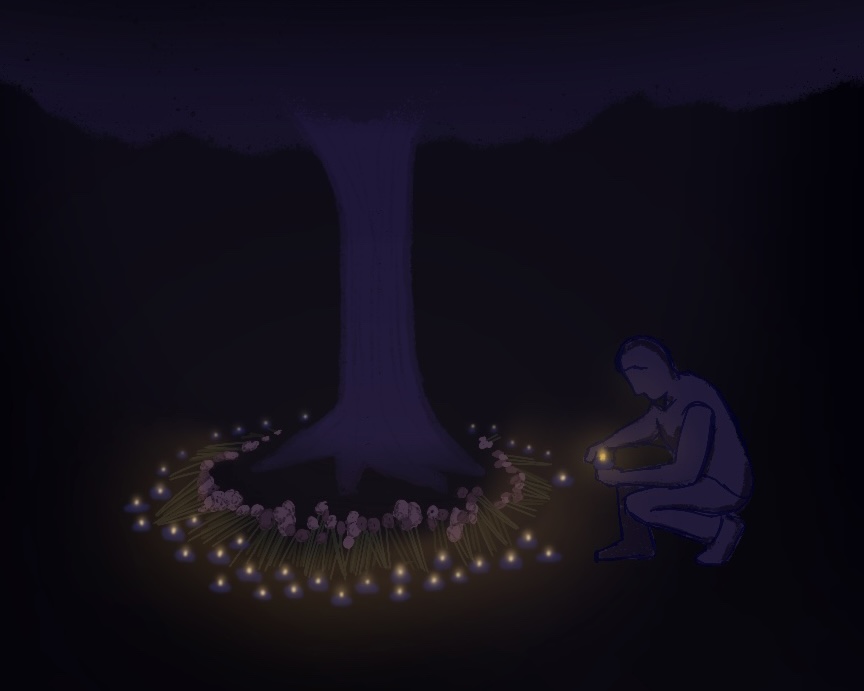This week, the Binghamton community experienced a devastating loss. On Monday, students learned that a sophomore student, Natalia Malcevic, was found deceased outside the Binghamton University Bartle Library Tower. It is hard to be adequately prepared for such an unforeseen and horrific event, and it is fair to say that University students and staff alike are still figuring out how to navigate the situation. However, this tragedy also emphasizes the dire need for improved mental health resources — a request that the student body has made for years that has gone substantially unanswered — as well as acknowledgement of the strains faced by students and professors
Students were notified via a B-Alert at 8:56 a.m. Monday morning that police were “investigating an incident” outside of the Bartle Library, and at 9:23 a.m., a follow-up B-Alert announced that Monday classes would be canceled. However, despite the tragedy occurring in the very early hours of the morning, students still attended early athletic training and classes, putting some students in situations where they were exposed to the scene — an extremely traumatizing experience. We are confused, frustrated and angry that classes were not canceled earlier, as it seems that the University had knowledge of the events prior.
On Tuesday morning, a B-Line was sent out. Everyone who read President Harvey Stenger’s message could feel the pain and grief in his words. The vulnerability from a leader in a time like this is paramount in helping students begin to confront their own feelings on the matter. The outpouring of support for his message highlighted how many students felt heard by their University President. However, in a grieving state such as Stenger’s, no one should be expected to make sweeping, last minute decisions in the best interest of all.
Stenger’s decision to not make a decision to cancel classes left professors and students alike in a limbo. And this is no fault of Stenger’s, this is completely a lack of preparation and consideration from the administration as a whole. A proper response would have been a pre-prepared response. What happened was a tragedy, and ideally would have been prevented by stronger mental health outlets, but it is something that could have been planned for. We cannot imagine that a university that caters to over 18,000 students could not have procedures in place to ensure the safety and mental well-being of their staff and students.
The decision to leave class cancellation up to professors imposed on them the burden of being the point of contact and decision-maker for a grieving student body. With no prior preparation or guidelines on how to broach conversations with students, how were professors supposed to respond in such a situation and ensure they did right by their students? Professors are also struggling with whether and how to address the tragedy in their classes. The lack of preparation and decision-making from the administration leaves professors and students with the decision whether or not to prioritize mental health following such a shock.
This tragedy highlights the dire need for more robust mental health resources on our campus. It feels especially exhausting and frustrating to call on the university to fulfill their responsibility to provide its students with adequate support after such a tragedy. In our Editorial Board’s semesterly “Report Cards,” we have repeatedly criticized the egregious lack of mental health resource, including a ratio of one University Counseling Center (UCC) counselor per about 1,213 students, as well as the university’s “brief therapy” model that falls short of long term support. When we have increased the grade that we have given “mental health” at the university, such as from an “F” in spring 2022 to a “D+” in fall 2022, it has been begrudgingly, and in response to only piecemeal improvements.
Furthermore, unfortunately, this is not the first time that our Editorial Board has had to publish an editorial of this type. In April 2022, following the passing of BU graduate student Robert Martin, we published an editorial emphasizing the lack of university-funded mental health resources while commending student organizations like the Mental Health Outreach Peer Educators (M-HOPE) group that have been taking the burden to care for our study body. A year and a half later, we are once again pleading with the University to do more to support its students.
As we continue to grieve as a community, we hope that University administration, staff, and students are mindful of each other’s mental health and well-being. As a community experiencing an unimaginable time, we must care for each other.



